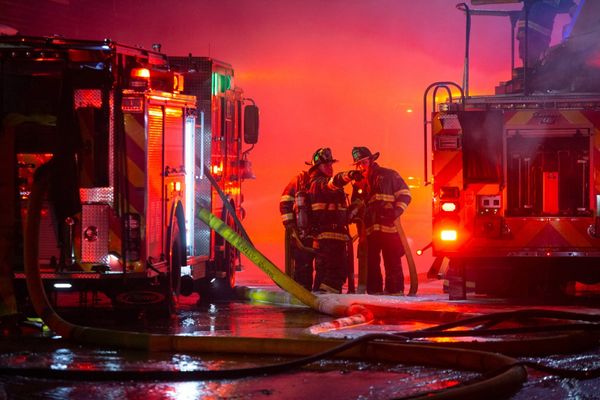
“I’m less concerned with villains and heroes than I am with how the next 50 years can be more peaceful than the last,” says Richard English, professor of politics at Queen’s University Belfast and director of the Senator George J Mitchell Institute for Global Peace, Security and Justice. It’s a refreshing perspective in a world where peace often seems impossible, and the complexities of conflict are readily reduced to narratives of good versus evil.
Queen’s is a Russell Group university at the forefront of global peacebuilding and reconciliation research. It’s a research institution that influences academic thought, shapes policy, and transforms lives in conflict communities worldwide. Its location in Belfast – a city shaped by decades of sectarian violence – means those engaged in the university’s peacebuilding work have a deeply personal awareness of the reality beyond research papers and reports. “The practicalities of the lived experience of conflict and post-conflict have been unavoidable for Queen’s – they affect everyone at the university, staff and students,” says English.
He believes there is “tremendous benefit” to the university’s location. “It determines a real-world pragmatism about dealing with the legacy of conflict and understanding why conflicts emerge, how they end, and all their complexities,” he says. “It means you have to deal with the actual humanity of the people involved. It makes it imperative that Queen’s engages with real-world practicalities, but it also means we’re more sceptical about neat answers to complicated questions.”
This sense of personal connection to conflict compels researchers at the university to prioritise victims’ voices, ensuring that those most affected by violence are central to peacebuilding work. A powerful local example is the work of Kieran McEvoy, professor at the school of law and Senator George J Mitchell chair of peace, security and justice, in uncovering the truth behind the sectarian killing of John Crawford in 1974, who was shot at his furniture workshop in west Belfast.
Over several years, McEvoy facilitated a dialogue with the Ulster Volunteer Force (UVF), a Protestant paramilitary organisation that was part of a ceasefire at the time of Crawford’s death, culminating in a formal acknowledgement of responsibility for the killing, which “brought a measure of resolution” to the Crawford family. “We don’t just do the posh academic writing,” McEvoy says. “We strive to make a practical difference, whether it’s in Cambodia, Colombia, or locally in Northern Ireland.”
The Mitchell Institute serves as a hub for interdisciplinary research into the complexities of peacebuilding, and fostering dialogue between people with opposing views is a hallmark of its work. “One of the things Senator Mitchell did so powerfully in Northern Ireland was to gather people together to listen to those they most disagreed with,” says English. “There’s no point, in conflict settings, listening only to the people you agree with.”
Ensuring that research is impactful and not just theoretical is at the core of what English terms Queen’s “experience-respectful” approach. It is a model that has informed conflict resolution and peacebuilding processes far beyond Northern Ireland. McEvoy, who has conducted research in conflict and post-conflict settings worldwide, worked with the Revolutionary Armed Forces of Colombia (FARC), a guerrilla group that was mandated by Colombia’s transitional justice court to issue an apology for the international crime of kidnapping. His research, originally commissioned by the United Nations on how armed groups can offer effective apologies, was utilised by FARC as part of the Colombian peace process.
Lessons learned from Northern Ireland’s peace process have also informed the university’s work in global conflict zones. Louise Mallinder, professor in the school of law and deputy director of the Senator George J Mitchell Institute for Global Peace, Security and Justice, focuses on policymaking and victims’ rights, including truth, justice and reparations. “Much of our work aims to push policymakers to prioritise victims’ needs while navigating complex political settings,” she says.
Mallinder worked with a team of experts from around the world to develop the Belfast Guidelines on Amnesty and Accountability (pdf), which have been referenced in truth commission reports globally and in UN reports, and by international courts and mediators in countries such as Colombia. “What’s useful about academics doing this sort of work is that we can bring insights or knowledge of how transitional justice has worked in other places to inform discussions,” Mallinder adds.
One of the most challenging but important aspects of peacebuilding is addressing the legacy of violence. The university researchers tackle these issues head-on, and the university remains committed to helping societies face difficult truths while building sustainable futures. In northern Uganda, McEvoy supported a local community that was advocating amnesty for child soldiers – a stance that challenged international norms.
“Communities most affected by the violence committed by the Lord’s Resistance Army were pushing for amnesty for the former fighters,” McEvoy says. Victims viewed the fighters, many of whom were child soldiers kidnapped from their villages, as victims themselves, but international lawyers and human rights organisations dismissed this, prioritising the “rule of law” over victims’ wishes.
“It’s a perfect example of victims’ voices being captured and deployed politically but not necessarily being heard or listened to,” he says. “And we saw a lot of that in the Northern Ireland context as well, where victims’ voices were co-opted in some ways by different political actors.”
At the heart of the university’s complex peacebuilding research is a simple goal: to foster peace for future generations. “The real impulsion is, how can we contribute towards understanding that will minimise human suffering?” says English. “On all sides in conflicts, Northern Ireland included, I think people exaggerate what violence will achieve, and I think that that’s one of the tragedies of the Israel-Palestine conflict at the moment.”
Northern Ireland’s peace process, meanwhile, continues to inspire societies in conflict. “Many look to it for hope,” says McEvoy. Growing up, he says, there were times he thought the conflict would never end. “The fact that it did is powerful for societies currently in conflict. It’s a reminder that peace is possible.”
Discover more cutting-edge research from Queen’s University Belfast







